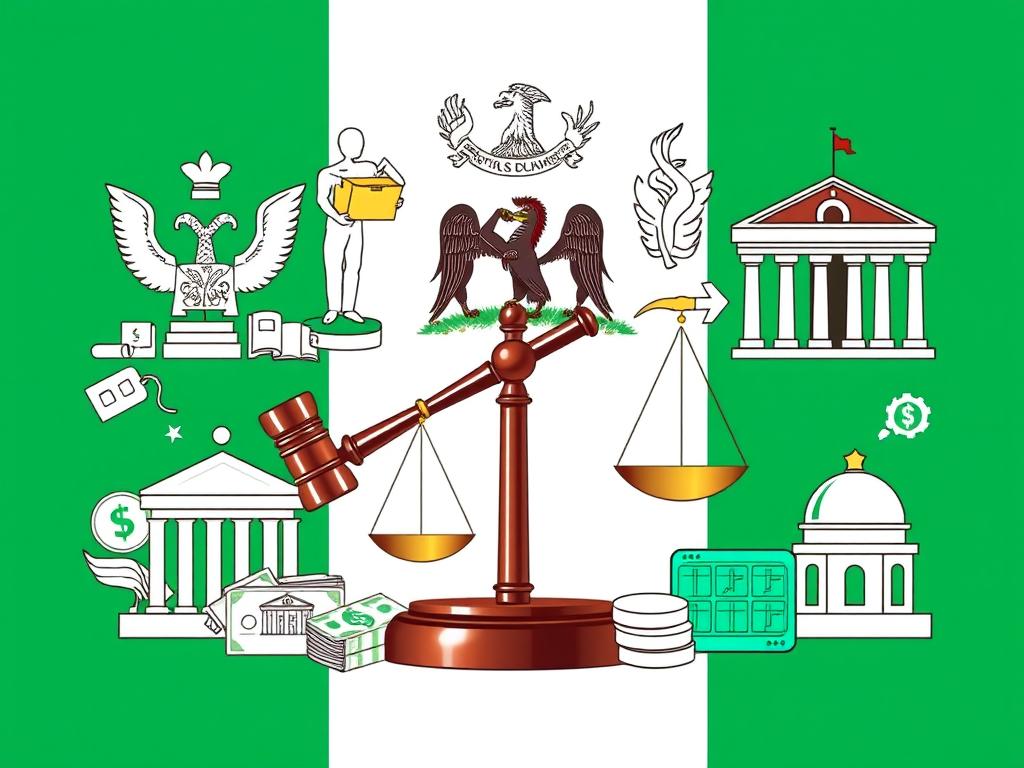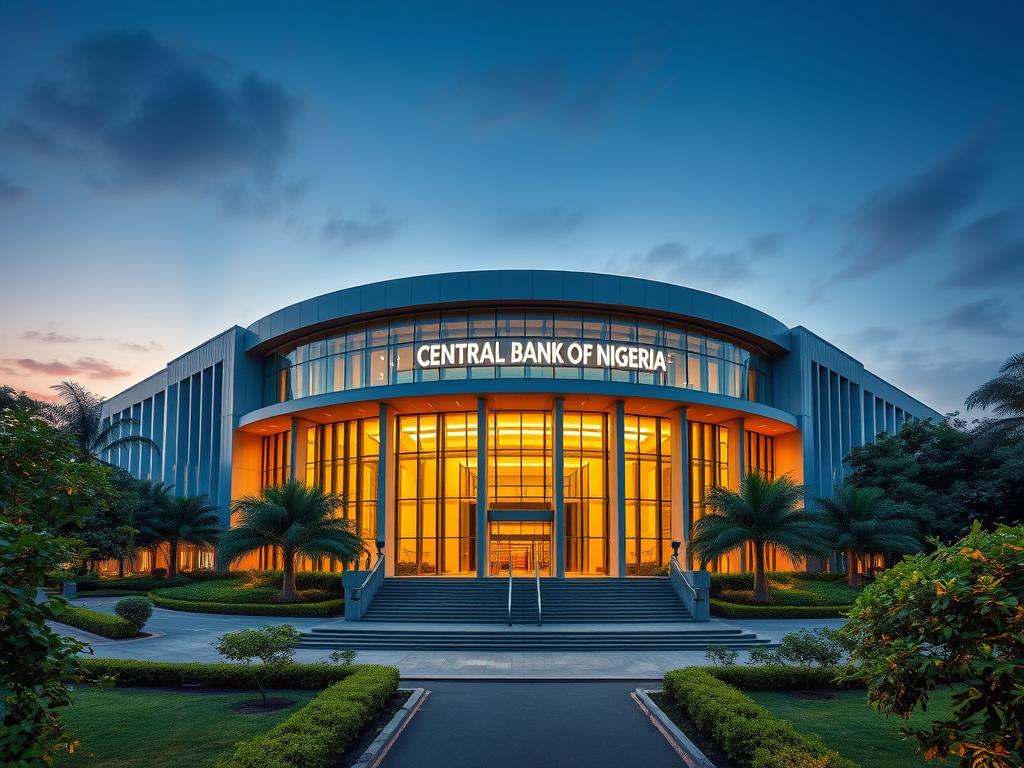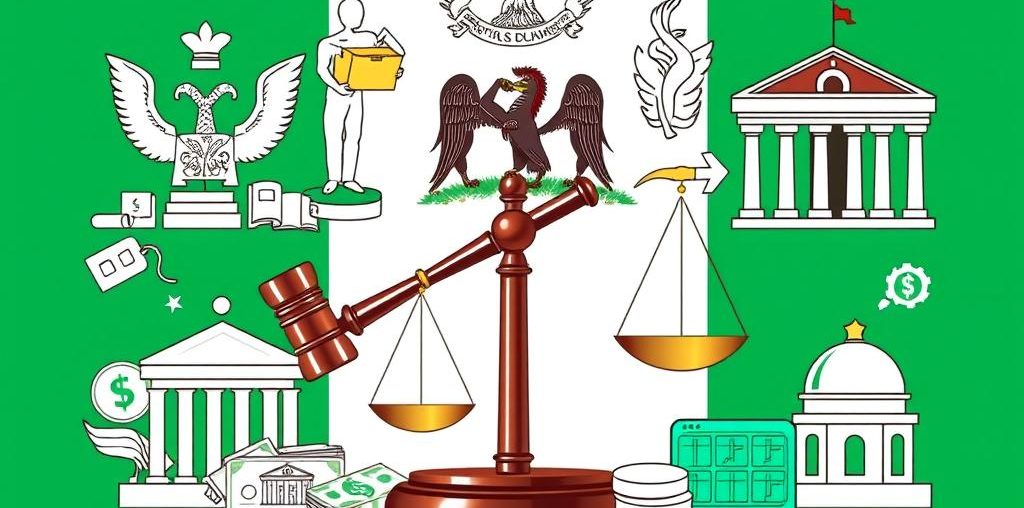The Nigerian financial sector is complex and always changing. It has many institutions and financial regulatory bodies. They work together to keep things stable, clear, and safe for everyone.

These bodies are key to Nigeria’s economic growth. They watch over the financial industry’s sectors like banking and capital markets. They make sure everyone follows the rules and protect both consumers and financial institutions.
This creates a stable and trustworthy place for financial dealings.
Introduction to Financial Regulatory Bodies
In the complex world of finance, financial regulatory bodies are key. They ensure the financial system is stable, fair, and honest. Agencies like the Federal Reserve, the Consumer Financial Protection Bureau (CFPB), and the Commodity Futures Trading Commission (CFTC) watch over financial institutions. They protect consumers and keep financial markets healthy.
Importance of Financial Regulation
Financial regulation is vital. It protects investors, businesses, and the economy. It prevents financial crises, stops fraud, and ensures transparency and accountability in finance.
Overview of Nigerian Financial Sector
Nigeria’s financial sector is growing fast and is full of variety. It has banks, insurance companies, stock exchanges, and investment funds. These institutions are key to Nigeria’s economic growth. But, they face challenges like complex rules, market ups and downs, and the need for more people to be financially included.
| Key Players in Nigerian Financial Sector | Roles and Responsibilities |
|---|---|
| Central Bank of Nigeria (CBN) | Monetary policy, banking regulation, and financial stability |
| Nigerian Securities and Exchange Commission (SEC) | Capital markets regulation and investor protection |
| National Insurance Commission (NAICOM) | Insurance industry regulation and oversight |
This article will explore the roles of these financial regulatory bodies in detail. It will give a full view of how Nigeria’s financial world is governed.

The Central Bank of Nigeria (CBN)
The Central Bank of Nigeria (CBN) is the top body that keeps the country’s money and finance stable. It makes sure the banking and finance system works well and efficiently.
The CBN is key in being the lender of last resort. This means it gives emergency money to banks and other financial groups when they need it most. This helps prevent the financial system from breaking down. It’s vital for keeping Nigeria’s economy stable.
The CBN also makes and puts into action money policies. These policies help control inflation, keep the exchange rate stable, and boost economic growth. The CBN does this by changing interest rates, reserve needs, and other tools it has.
Another big job of the CBN is to watch over the banking sector. It sets the rules for banks in Nigeria. This makes sure they follow good practices and stay financially healthy. This helps protect people’s savings and builds trust in the banking system.
The CBN has a special role in Nigeria, unlike the federal reserve in the U.S. As the central bank, it helps shape the country’s economic and financial policies. This helps make the Nigerian economy stable and grow.

Nigerian Securities and Exchange Commission (SEC)
The Nigerian Securities and Exchange Commission (SEC) is the top regulator of the country’s capital markets. It ensures the markets work well and stay honest. The SEC is key to the financial health of Nigeria.
Roles and Responsibilities of SEC
The SEC has many important tasks. These include:
- Registering and regulating securities and stock exchanges
- Watching over market players like brokers and investment advisors
- Looking into and making sure people follow the law
- Teaching investors and making them financially smart
- Working with other groups, like the securities and exchange commission (SEC) and the financial industry regulatory authority (FINRA), to keep rules strong
Regulations Governing Capital Markets
The SEC sets and enforces rules for the Nigerian capital markets. These rules cover many areas, such as:
- What companies and securities must share with the public
- Rules against insider trading and market tricks
- Steps to protect investors, like making sure advice is right for them
- Rules for market players to follow and report on
- Watching over the commodity futures trading commission (CFTC) in Nigeria
The SEC works hard to keep the markets honest and stable. This helps investors trust the markets more and helps the financial sector grow.

National Insurance Commission (NAICOM)
The National Insurance Commission (NAICOM) is key in regulating Nigeria’s insurance industry. It makes sure insurance companies are financially stable and protects policyholders’ interests.
NAICOM’s main job is to issue licenses and regulate insurance companies in Nigeria. It sets rules for insurance products, financial health, and reporting. This keeps the industry honest and trustworthy.
NAICOM also looks out for consumer protection. It makes sure insurance companies act fairly towards their customers. If there are complaints, NAICOM investigates and solves them. It also takes action against companies that break the rules.
NAICOM works with other groups like the Central Bank of Nigeria (CBN) and the Federal Deposit Insurance Corporation (FDIC). Together, they help keep Nigeria’s financial system strong and working well.

NAICOM’s work is vital for the insurance industry’s growth and stability. It helps protect both insurance companies and their customers.
Financial Regulatory Bodies
The Central Bank of Nigeria (CBN), Securities and Exchange Commission (SEC), and National Insurance Commission (NAICOM) are key players in Nigeria’s financial scene. They ensure the financial system is stable and trustworthy. These bodies are crucial for the country’s economic health.
Other Key Regulators
Other important financial regulators in Nigeria include:
- The Office of the Comptroller of the Currency (OCC) – This agency oversees national banks. It ensures they operate safely and fairly, giving everyone equal access to financial services.
- The National Credit Union Administration (NCUA) – This agency looks after the country’s credit unions. It protects credit union members and keeps credit unions safe and sound.
- The Nigeria Deposit Insurance Corporation (NDIC) – This corporation insures deposits in banks and other financial institutions. It also helps solve problems when banks fail and keeps the financial system stable.
- The Pension Commission (PENCOM) – This body makes sure the pension industry in Nigeria is safe and well-managed. It protects pension assets for everyone’s benefit.
Together, these financial regulators help create a strong and efficient financial system in Nigeria. They protect consumers, investors, and the economy as a whole.

Conclusion
This article has given a full look at the main financial regulatory bodies in Nigeria. They make sure the financial sector is stable and honest. The Central Bank of Nigeria (CBN), the Nigerian Securities and Exchange Commission (SEC), and the National Insurance Commission (NAICOM) lead in overseeing the financial system.
Knowing about these bodies helps businesses and consumers make smart choices. We’ve looked into what they do and the rules they follow. This info helps people work with the financial sector the right way.
The Nigerian economy is always changing, making strong rules and checks more important. These bodies are key in creating a financial system that’s stable, clear, and trustworthy. This is vital for the economy to grow and develop. By following the rules, everyone can help make the Nigerian financial sector stronger and more resilient.
FAQ
What is the role of the Central Bank of Nigeria (CBN)?
The Central Bank of Nigeria (CBN) is the top body that keeps the economy stable. It acts as the last lender and watches over the banking and financial world.
What are the key responsibilities of the Nigerian Securities and Exchange Commission (SEC)?
The Nigerian Securities and Exchange Commission (SEC) leads the capital markets in the country. It makes sure rules are followed to keep the markets running well and honestly.
What is the role of the National Insurance Commission (NAICOM)?
The National Insurance Commission (NAICOM) looks after the insurance sector in Nigeria. It makes sure insurance companies are doing right by customers and staying financially strong.
What are some other key financial regulatory bodies in Nigeria?
Besides the CBN, SEC, and NAICOM, Nigeria has more financial regulators. The Office of the Comptroller of the Currency (OCC) and the National Credit Union Administration (NCUA) watch over different parts of the financial world.


